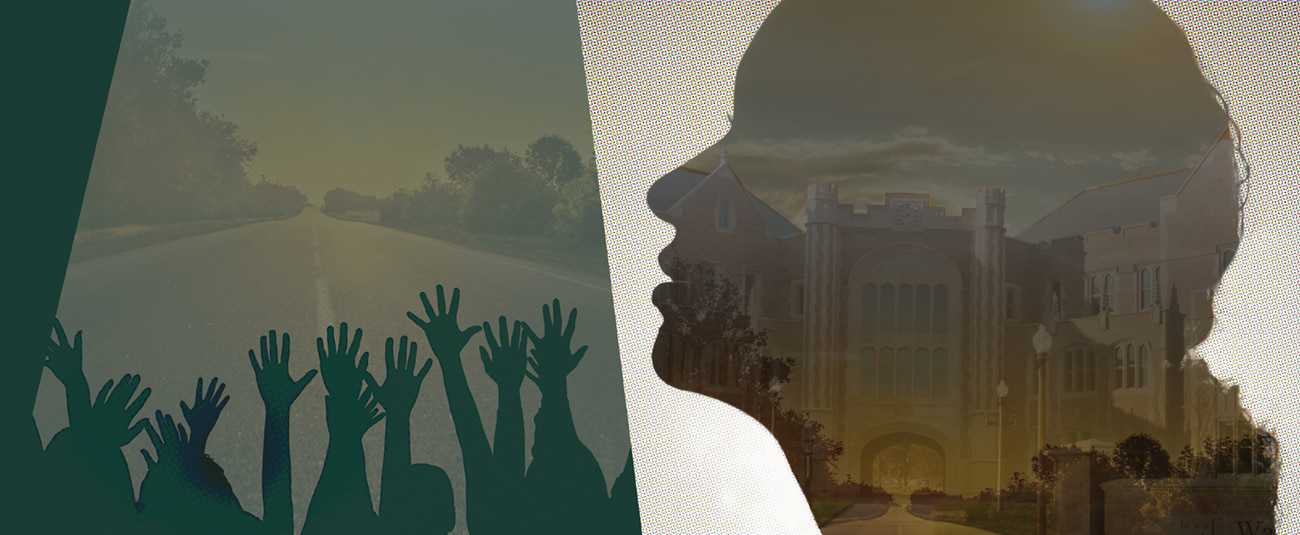Racial justice in engineering
The road ahead for McKelvey Engineering
Editor’s note: In Engineering Momentum, we frequently tell you about the strengths and opportunities in McKelvey School of Engineering and the progress toward new goals. We do this because we are proud of what we do, and we want you to be proud as well. However, this story takes a different tack: Here we address the challenges we face as a school in addressing diversity, equity and inclusion, as well as where we have fallen short and how we plan to improve.
Amid the weight of the global pandemic in 2020 came a renewed and intensified focus on racial justice in the United States after numerous unjustified killings of Black Americans at the hands of white law enforcement officers, including George Floyd and Breonna Taylor — six years after Michael Brown was killed in Ferguson, Missouri — as well as others who did not become household names. After Floyd’s death in May, as thousands of Americans took to the streets to express their outrage about the killings, Washington University in St. Louis Chancellor Andrew D. Martin reaffirmed the university’s commitment to support all members of the university’s community and to redouble efforts for equity.
In the McKelvey School of Engineering, Dean Aaron F. Bobick also has committed to involving the McKelvey Engineering community in efforts to achieve racial equity within the school, as well as supporting racial justice efforts on campus, in St. Louis and around the world. In the latter half of 2020, Bobick, with support from school leadership, faculty, staff and students, implemented several new initiatives to address diversity, equity and inclusion within the school.
“Our 2018 strategic plan wove racial equity goals throughout the various objectives,” Bobick said, “but it did not explicitly call out racial equity as a fundamental objective in and of itself. This is one of the reasons that we have been talking about changing things and addressing diversity, equity and inclusion for a long time, but little has changed. This lack of progress gives rise to frustration and anger on the part of our Black and people of color members of our community. It is telling that it took the violent events of the past summer, and in particular, a video of a Black man being killed by a policeman kneeling on his neck for us to decide that we have fallen short. Our challenge is to harness that dissatisfaction and anger into steps that might actually make a difference. Frankly, this is very hard work, and we should only undertake these efforts if we have the will to establish sustainable approaches to increasing racial equity within our School.”
As one of the first steps, in Fall 2020, Bobick appointed the McKelvey Committee on Diversity, Equity and Inclusion (DEI) to provide structure and oversight to the school’s efforts to address these issues. The committee is chaired by Princess Imoukhuede, associate professor of biomedical engineering, with associate chair Jessica Wagenseil, professor of mechanical engineering & materials science. Coupled with forming the committee, Bobick appointed Imoukhuede the school’s inaugural director of diversity initiatives and Wagenseil the inaugural vice dean for faculty advancement.
As the school’s first director of diversity initiatives, Imoukhuede will chair the 16-member committee and ensure that it engages with the entire McKelvey community to identify and address DEI issues. The committee’s mission is to exemplify, encourage, facilitate and nurture a culture of inclusive excellence at the McKelvey School of Engineering through the identification and implementation of best practices in recruitment, retention and climate for students, postdoctoral researchers, faculty and staff of Black, Indigenous and Latinx populations. In addition, Imoukhuede will serve as the school’s liaison to the university’s various organizations focused on diversity, equity and inclusion, including the Center for the Study of Race, Ethnicity & Equity; the Academy for Diversity, Equity & Inclusion; and the Center for Diversity and Inclusion, as well as connect with the Office of the Provost.
As vice dean, Wagenseil will work with the department chairs to assess and monitor faculty mentoring and career development, to develop faculty leadership training opportunities, and to coordinate nominations for faculty awards in support of the full range of faculty career progression. She also will work with Bobick to coordinate the tenure and promotion process.
Wagenseil and Imoukhuede were part of a precursor faculty committee that organized a new virtual seminar series, titled Education, Engineering & Race, that features academic speakers from around the country sharing how their research applies to racial justice in engineering education. Three seminars were held in summer 2020, each followed by moderated breakout discussion groups in which participants shared ideas and concerns, many of which were recorded on shared documents for future reference. Three additional seminars are being held in the spring 2021 semester.
“We’ve always had a modest effort on diversity, but very little on equity and inclusion,” Bobick said.
“It’s not enough to just generally be supportive: we have to be active. Passive support is not the same as active consideration and active efforts. Engineering has always been a participant in what other parts of the university are leading, but we’ve never organized what we’re going to do until now.”
Bobick acknowledges that the challenges of 2020 have slowed efforts.
“Because of the pandemic, faculty and students are working under extreme circumstances, and quite frankly, are exhausted,” he said. “Because I am adamant that any DEI efforts we launch be sustainable, we are purposely being quite deliberate in developing our strategies and practices. The amount of new work faculty, staff and students can take on right now is limited, and we want to ensure that all efforts receive the investment of time and energy required. Much of what the committee is doing now is preparing us to do the work we need to do.”
And, he recognizes that these efforts may not be successful immediately.
“We are trying to adopt best practices, mold them to our culture, and mold our culture to some of those things and see where we are,” he said. “We have reason to believe that by being proactive we can become better than we are, but this does not turn around quickly.”
McKelvey Engineering also has committed to launch new recruitment efforts for faculty, staff and students from various racial and ethnic backgrounds as well as for more women, first-generation and low-income students. The School will recruit two new faculty members as part of the Danforth Campus-wide cluster hire of 12 new faculty members researching the manifestations of race in our society.
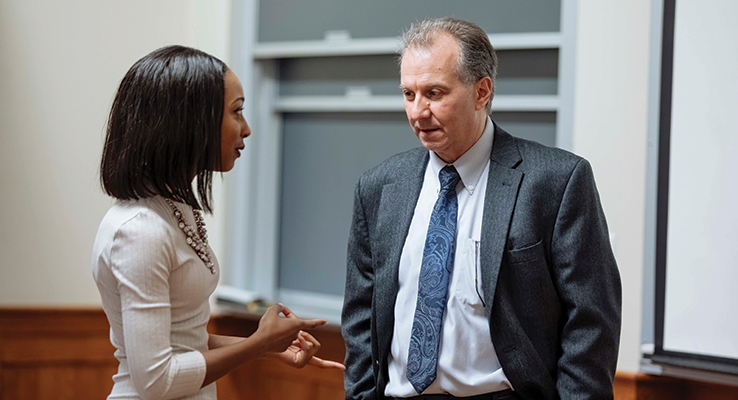
Dean Bobick meets regularly with students from NSBE, SHPE and other student groups.
This follows with the desire of James McKelvey Jr., who provided the gift to name the school, to open McKelvey’s doors to a wider audience.
“I want to see WashU, engineering in particular, but the institution in general, as a talent magnet and talent creator for St. Louis and the world,” McKelvey said in a 2019 interview. “One of the things that motivated me to give the gift was the potential to open the doors of WashU to people who would probably never consider coming to our school. I want them to feel welcome and for them to be part of a larger community.”
In conjunction with opening the doors wider, McKelvey also said he is committed to increasing diversity in the school.
“I think it’s important for society that we don’t want to create elite universities that cater only to elite students. I think we want to have as much diversity in thought and age and everything as possible.”
In Fall 2020, 21% of first-year students in McKelvey Engineering were Black, Indigenous, or from other racial or ethnic backgrounds, and 37% are women. More than 60% of graduate students are international students. Among full-time faculty, 25% are women, and 50% have international roots.
“I’m often asked why we are not hiring more Black faculty,” Bobick said. “Along with every other Engineering dean, I am desperately trying to hire more Black and Brown faculty, as well as more women – a challenge more pronounced in Engineering than other parts of the academy. To do so requires looking beyond the traditional sources of graduating doctoral candidates and to surface as many applicants of color as possible.”
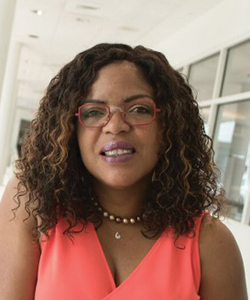
But Ebony O. McGee, an associate professor of diversity and STEM education at Peabody College at Vanderbilt University and author of “Black, Brown, Bruised: How Racialized STEM Education Stifles Innovation,” says the pipeline is a broken and simplistic metaphor when it comes to groups of color.
“There are enough black faculty for each of the 350 engineering institutions to hire one black faculty member, but 37% of engineering institutions have no black faculty,” she said. “Why don’t they hire one of those thousands of black doctoral grads? It’s because they didn’t go to top universities like University of Chicago, MIT or Georgia Tech. If you keep looking at the same 35 institutions, you’re going to get the same results.”
McGee says the STEM retention messages and marketing need a makeover.
“STEM will have to find a greater appreciation for racial justice that goes beyond considering racial justice in STEM a service project,” she said. “It is part of people’s core research and professional and personal identities.
“Give it the recognition it deserves, don’t marginalize racial justice in STEM, and allow faculty to use STEM as a tool for decreasing racism and anti-blackness in STEM.”
McGee’s work promotes an equity ethic, the concept that people in the STEM fields from diverse groups gravitate toward empathic social causes and racial justice efforts to eliminate disparities both within their STEM field and beyond.
“Black, LatinX and Indigenous folks come to their engineering faculty positions with an embedded equity ethic as part of their own racialization and experience,” she said. “Maybe it’s because those who are seen as smart in STEM in their younger years are volunteering, speaking and are really engaged in community, but those things aren’t valued or appreciated in STEM. They have to cut off part of their professional identities — the part that cares about social, environmental and racial justice, and just do STEM because that’s what’s valued.”
Students call to action
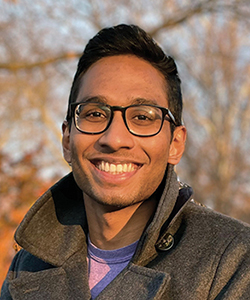
McKelvey Engineering students say there aren’t structures within the school that support students of color and are seeking change. In summer 2020, two student groups — one comprised of graduate student groups and one of undergraduate student groups — presented call-to-action statements to the School leadership calling for change. Partly inspired by social media movements #BlackintheIvory and #ShutdownSTEM, these student groups seek to improve the environment in McKelvey Engineering for students from groups traditionally underrepresented in the STEM fields.
Dinal Jayasekera, a fourth-year doctoral student in biomedical engineering, was one of the leaders of the graduate student group that drafted a 12-page document outlining actions it wants to see within the school.
High-level goals from graduate students:
- Adopting a zero-tolerance policy toward harassment, discrimination and unprofessional behavior;
- Reforming personnel practices to support Black and others from diverse groups traditionally underrepresented in engineering;
- Cultivating an inclusive culture that respects individuals for their unique contributions and expertise;
- Diversifying and innovating the curriculum.
Jayasekera said the George Floyd protests last summer opened his eyes to pervasive systemic racism in the United States, but as an international student, he didn’t feel it was his place to bring it up. After a group of students wrote a call to action to Chancellor Andrew D. Martin in the spring, McKelvey graduate students decided to present goals they wanted the school to address in a school-specific call to action, he said.
In all, 10 graduate students wrote the call to action, and 110 additional graduate students and 12 engineering graduate student groups signed on in support.
“The school’s strategic plan wasn’t very transparent about the goals they had met and what was in progress,” Jayasekera said. “These initiatives weren’t given the attention they deserved because the pandemic took up a lot of their time. We want to use the attention that was brought to DEI as a result of the Floyd protests to enact the changes that we, the students, want to see.”
Jayasekera said more than half of graduate students who answered a survey said they were not comfortable publicly acknowledging support of DEI initiatives because they feared backlash.
“This drives our point that the dean and the chairs need to be transparent that they are supportive of this cause,” he said. “If they come out in support of these initiatives, there will be more students willing to help out and voice their concerns and point out issues that need to be addressed.”
The call to action written by undergraduate students, led by students in the National Association of Black Engineers (NSBE), calls for changes that would improve the McKelvey Engineering environment for current and future Black students to feel included, wanted and safe among professors and peers. The document, titled #McKelveyTakesResponsibility, calls for six high-level initiatives.
#McKelveyTakesResponsibility:
- Increase Black and Brown faculty
- Develop an Engineering course to address racial inequity and intersectionality
- Accountability in faculty
- Diversify study abroad options
- Develop civic engagement coursesand programs
- Implementation and initiatives towardthe future
Hannah Smith, the 2020-21 president of McKelvey Engineering’s NSBE chapter, said the students have other requests, including having school administration publicly denounce all hate and racism proactively, rather than reactively to a particular incident.
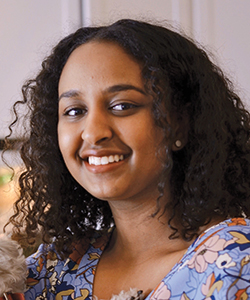
“They are willing to meet with us, have a conversation with us and listen to what we want, but they won’t always implement what we request even if it does seem simple,” said Smith, a senior majoring in applied science in electrical engineering. “I do realize it is a process. Administrative actions are behind closed doors, and every day students don’t see the results of those negotiations because they are navigating classes and homework.”
Smith and Jayasekera, along with two other students are members of the DEI Committee which should provide greater transparency to the student body.
In addition, the group requested a McKelvey Engineering-specific hate and bias reporting system.
“When we say something is wrong, we rarely hear back, and we don’t hear anything about the process,” Smith said. “Survivors welcome information about these things, and when we don’t learn about the discipline or punishment that faculty received, it makes us feel like we aren’t heard.”
When Smith meets with potential students or speaks on panels for prospective Engineering students, she is often asked about the climate for Black students at WashU.
“I feel like I am sometimes put in a position of being an expert on diversity, equity and inclusion,” she said. “My experience being a woman and Black in Engineering is an isolating experience — you won’t see a lot of people like me,” she said. “I’m candid about my experiences, but I tell them that college is what you make of it, and it’s hard no matter where you go.”
Both Jayasekera and Smith said the appointment of Imoukhuede is a step in the right direction, but they want to see more. Smith said undergraduate students would like a full-time staff member who has experience within critical race theory and DEI in general to be dedicated to racial bias, as well as mandatory diversity and inclusion training for faculty and staff.
In response to the two student-led call-to-action statements, McKelvey Engineering launched a page on its website dedicated to its diversity, equity and inclusion efforts. The page, engineering.wustl.edu/diversity, includes 11 action items for change, many of which are well underway, including appointing the committee headed by Imoukhuede and Wagenseil; increasing recruitment efforts for faculty, staff and students from groups underrepresented in STEM; and continuing the Education, Engineering & Race seminar series. Additional action items include improving the bias reporting system; improving retention of women and faculty members from groups underrepresented in the STEM fields; and working with the Brown School to develop new community partnerships.
“We are all very delighted with the progress we’ve seen so far,” Jayasekera said. “Many students have come forward to voice concerns, and there have been committees created that hopefully will do what they were created to do. We hope that we’ve inspired more people to speak out about these topics and move forward, and we realize there shouldn’t be any backlash for speaking about these topics that not just affect them, but the entire WashU and St. Louis community as a whole.”
We want your feedback All comments are anonymous and will never be made public.
Back to Engineering Momentum
